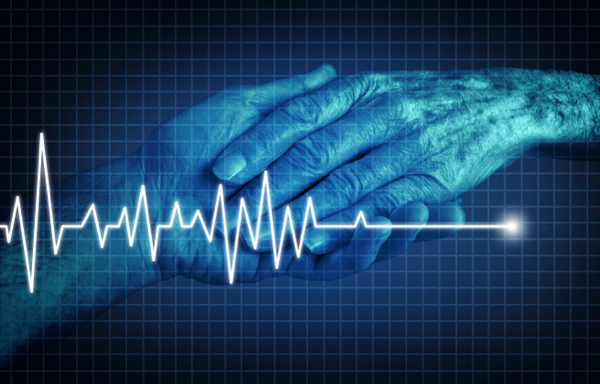Concerns rise over Canada’s assisted dying program being used to harvest organs
- Canada’s 2016 legalization of Medical Assistance in Dying (MAiD) aims to alleviate suffering but has raised ethical dilemmas, particularly regarding its intersection with organ donation. Critics fear this blurs the line between compassionate care and exploitation.
- Canada has become a global leader in organ donations from MAiD patients, with 136 transplants in 2021 alone, accounting for six percent of deceased donor transplants.
- Concerns about coercion are heightened, as 35 percent of MAiD recipients in 2021 felt they were a burden on others. Vulnerable individuals, including the elderly, disabled or mentally ill, may face pressure to choose MAiD for organ donation.
- Discussions among medical professionals about using organ extraction as a mode of death, coupled with the lucrative global organ trade, raise fears of exploitation and abuse, particularly for vulnerable populations.
- While proponents argue MAiD organ donation is voluntary and ethically regulated, critics warn that normalizing the practice risks devaluing human life. The expansion of MAiD, including to mental illness cases, intensifies the ethical stakes and calls for a reevaluation of societal values.
In Canada, the legalization of Medical Assistance in Dying (MAiD) in 2016 was hailed by some as a compassionate step toward allowing individuals to end their suffering. However, as the program has expanded, so too have the ethical dilemmas surrounding it – especially rising concerns regarding the growing intersection between MAiD and organ donation.
Under current Canadian law, the “dead donor rule” prohibits organ procurement until a donor is declared dead, typically five minutes after the heart stops beating. This means that “euthanasia by organ donation” – where death is caused by organ extraction rather than the administration of lethal drugs – is illegal.
However, the line between MAiD and organ donation is becoming increasingly blurred, sparking fears that vulnerable individuals could be pressured into ending their lives to supply organs for transplantation.
The numbers are striking. Since MAiD was legalized, Canada has emerged as a global leader in organ donations from euthanasia patients. In 2021 alone, 136 organ transplants were performed using organs from MAiD recipients, accounting for six percent of all deceased donor transplants in the country. While some celebrate this as a way to save lives, others warn that it risks turning human beings into commodities.
The ethical concerns are not hypothetical. In 2018, Canadian doctors openly debated whether euthanasia patients could be killed through organ extraction rather than lethal injection.
Rob Sibbald, an ethicist at London Health Sciences Centre in Ontario, suggested that the “best use” of organs might be to have the mode of death be organ retrieval itself.
Canadians could be getting coerced into assisted suicide for their organs
The potential for coercion is real. In 2021, a Health Canada report revealed that 35 percent of MAiD recipients felt they were a “burden on family, friends, or caregivers.” For individuals already grappling with feelings of worthlessness, the option to donate organs could add another layer of pressure to choose death.
Trudo Lemmens, a professor of health law at the University of Toronto, has warned that vulnerable patients might see organ donation as a way to “mean something” in their final moments — a tragic reflection of how society has devalued their lives.
The situation becomes even more alarming when considering the global organ trade. A 2020 report from the Library of the Canadian Parliament highlighted the lucrative nature of organ trafficking, with profits estimated between 840 million and 1.7 billion annually.
While most trafficked organs come from poor and vulnerable populations in developing countries, the expansion of MAiD in Canada raises the specter of domestic exploitation. Vulnerable Canadians, particularly the elderly, disabled and mentally ill, could be coerced into “donating” their organs as part of their MAiD process.
Angelina Ireland, executive director of the Delta Hospice Society, has sounded the alarm about “pre-mortem interventions” to harvest organs from MAiD recipients. She warns that such practices open the door to horrific abuses, particularly given the financial incentives involved.
“You can get big, big money on the world market,” she said, citing the book “The Red Market: On the Trail of the World’s Organ Brokers, Bone Thieves, Blood Farmers and Child Traffickers” by Scott Carney, which documents the dark underbelly of organ trafficking. (Related: Canadian lawmaker introduces petition against expanding EUTHANASIA for babies with “severe health issues.”)
Visit Euthanasia.news for more on the latest news regarding euthanasia and assisted dying around the world.
Watch this video discussing how Canada is euthanizing Canadians injured by vaccines.
This video is from the Cadkiah channel at Brighteon.com.
More related stories:
Bioterror Roundup: Canada ethnically cleanses native White population in name of medicine.
Report reveals Canada EUTHANIZED an average of 36 people DAILY throughout 2022.
Alberta launches review and public consultation about expansion of MAiD program that promotes euthanasia.
Ontario government reportedly tracked 428 cases of possible illegal euthanasia but never notified police.
Canada expands assisted suicide laws to allow for killing of INFANTS for profit.
Sources include:
Expose-News.com
CTVNews.ca
BBC.com
Brighteon.com
Read full article here


